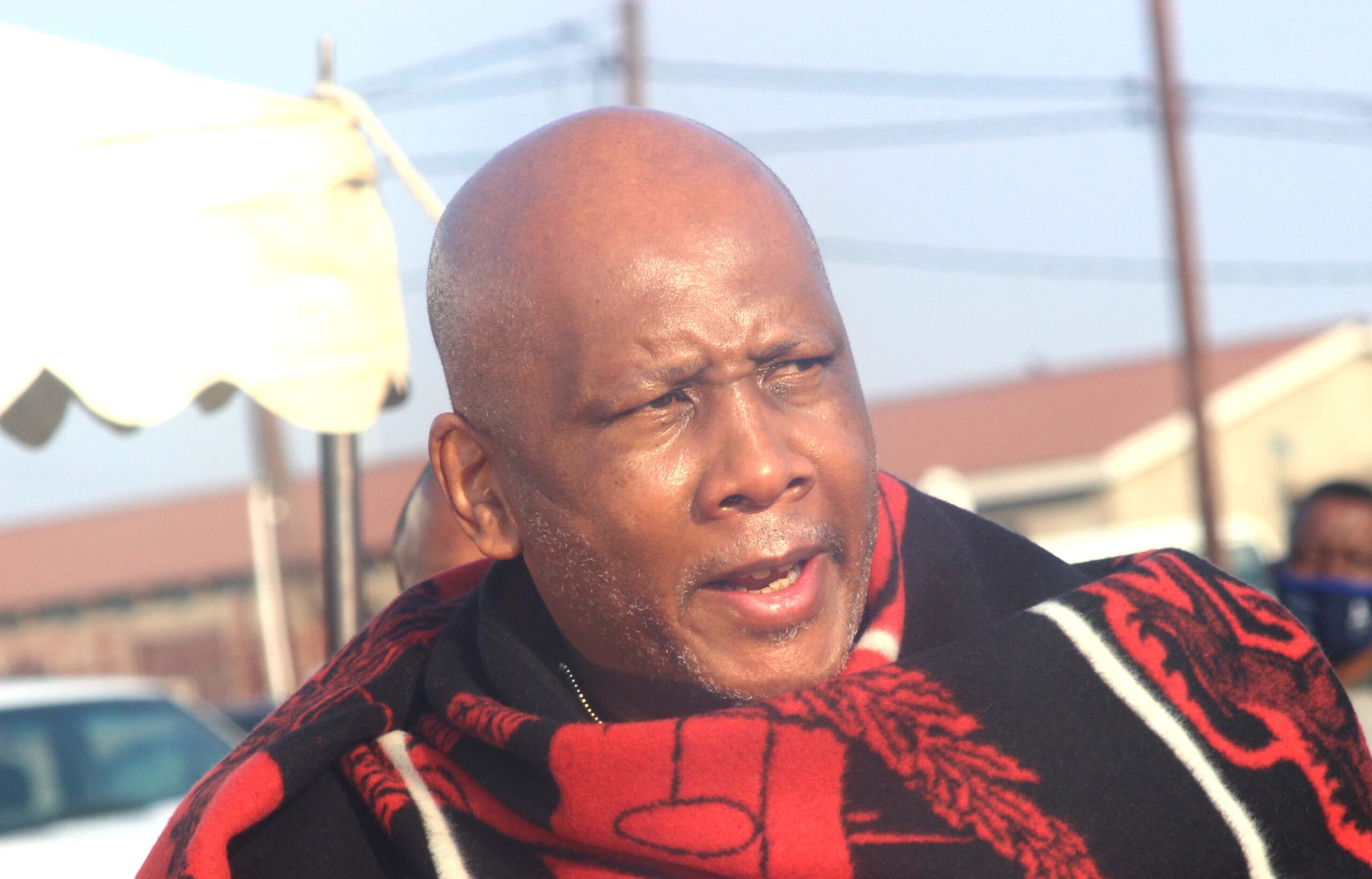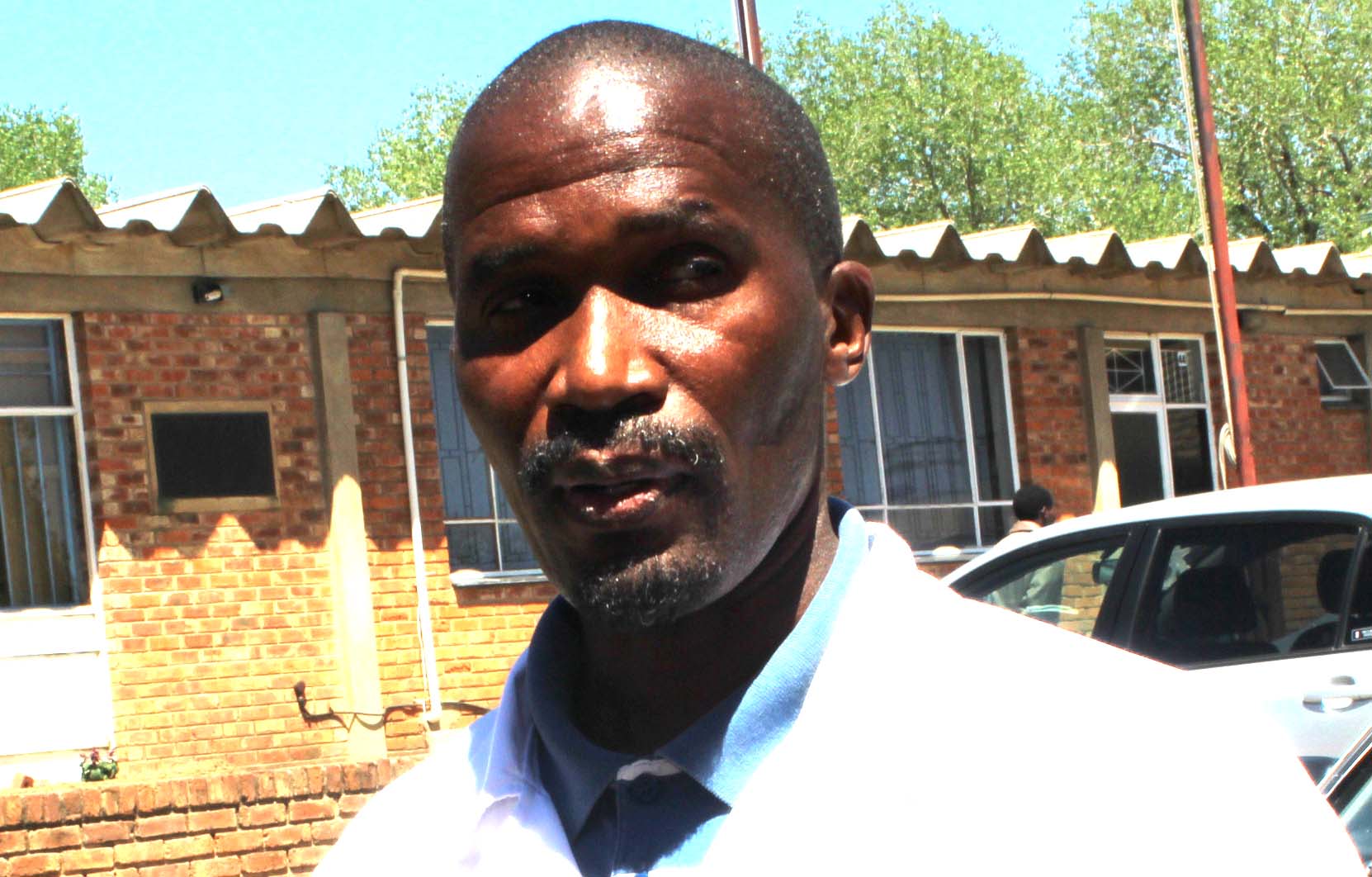
Deputy premier loses court bid to block corruption probe
Tefo Tefo
DEPUTY Prime Minister Mothetjoa Metsing yesterday lost a court bid to block the Directorate on Corruption and Economic Offences (DCEO) from investigating him for possible corruption.
The Lesotho Congress for Democracy (LCD) leader lodged a case before the Constitutional Court in August last year seeking an order declaring the DCEO’s acquisition of his financial transactions from Standard Lesotho Bank and Nedbank Lesotho unconstitutional.
However, a panel of three South African judges — George Maluleke, John ‘Musi and Sulet Potteril — dismissed the application and said the anti-corruption agency acted within the parameters of the law.
The much-anticipated judgment written by Justice ‘Musi, stated that although Mr Metsing had lost the case, he would not pay the costs of the suit.
“It is clear the Applicant (Mr Metsing) prosecuted a constitutional point in order to protect his constitutional rights. In my view, no cost order should be made,” noted the ruling, which was read in the court by Chief Justice Nthomeng Majara.
“I, therefore, make the following order: The application is dismissed with no order as to costs.”
The judgment also gave a detailed background of the case, noting: “Between October and November 2013, the Second Respondent (DCEO) received information from a whistleblower to the effect that a company called Big Bravo Construction (PTY) Ltd was undeservedly and illegally awarded a tender to construct roads in Ha-Matala and Ha-Leqele villages.
“It was further alleged the Applicant, who at the relevant time was Minister of Local Government and Chieftainship Affairs, received bribes from the company in order to award the tender to it,” read the judgment.
“Based on that information, the Second Respondent commenced a discreet and confidential investigation.
“The investigation revealed that the Applicant appointed the Deputy Principal Secretary (Mr Ntai Makoetje) as his delegate on the evaluation and adjudication panel, which assessed the tenders.
“It further revealed that the initial evaluation report had been revised to favour the company.”
Following this probe, the DCEO wrote to Standard Lesotho Bank, Nedbank Lesotho and First National Bank (FNB) Lesotho on 11 February 2014 seeking Mr Metsing’s banking details, the judges noted.
The DCEO cited the Prevention of Corruption and Economic Offences Act of 1999 in their request for this information.
However, only Standard Lesotho Bank and Nedbank Lesotho complied with the request and provided the details on 18 February 2014, the judges further highlighted.
“The Standard Lesotho Bank statement revealed that various unattributed cash deposits totaling M328 000 were made into the Applicant’s bank account.
“The Applicant’s account held at Nedbank Lesotho also revealed that numerous unattributed case deposits to the amount of M118 000 were made into the account.”
After obtaining the details, the DCEO Director General wrote to Mr Metsing on 9 July 2014, asking him to explain the source of the funds within seven days, the judgment further highlighted, adding the deputy premier had subsequently requested 28 days to consider the request. The DCEO had given him 11 August 2014 as the deadline for submitting the information, leading to the Constitutional Court case.
The judges also noted the DCEO then “ascertained that further unexplained deposits were made into the First National Bank Platinum account of the applicant, amounting to M524 964. 86.”
In dismissing Mr Metsing’s claim that the Prevention of Corruption and Economic Offences Act is unconstitutional, the judges noted the legislation was enacted for a good cause.
“The Act, which establishes the Second Respondent (DCEO) was promulgated to make provision for the prevention of corruption and confer power on the Second Respondent to investigate suspected cases of corruption and economic crime and matters connected therewith or incidental thereto,” the judges ruled.
The judgment also quoted former United Nations Secretary General Kofi Annan’s statement that corruption is “an insidious plague with a wide range of corrosive effects on societies”.
Said Mr Annan: “It undermines democracy and the rule of law, leads to violations of human rights, distorts markets, erodes the equality of life and allows organised crime, terrorism and other threats to human security to flourish.”
The judges then said Lesotho “is also not immune to the dangers that corruption poses to democracy, the rule of law and the socioeconomic up-liftment of citizens.
“In an attempt to address the pervasiveness of corruption and arrest its spread, the Act was promulgated.
“In order to perform the functions of the Second Respondent (DCEO), the First Respondent (DCEO Director General) is given the power to investigate alleged or suspected offences and to require persons to give information or provide documents.”
The court also dismissed Mr Metsing’s argument that he was already being treated as a suspect in the investigation.
“The investigation is conducted in order to ascertain whether an offence has been committed.
“The inquiry or investigation is done in a discreet and professional manner in order to protect the interest and integrity of the person requested to give information.
“Clearly, this is only an information-gathering procedure as the person who is required to answer questions or give information is not necessarily the subject of a criminal investigation.”
The court also said, although Mr Metsing’s right to privacy was violated, the question was whether it was a “justifiable infringement”.
“Corruption is a scourge that must be investigated and prosecuted at all costs.
“Sections 7 and 8 of the Act were enacted to facilitate the proper and effective investigation of corruption and other serious economic crimes.
“It is in the interest of public order and, to some extent, public safety that crimes such as corruption should be investigated by a specialised unit that can do so professionally, independently and expeditiously so that such crimes are prevented or uncovered and where there is sufficient evidence, prosecuted.
“This is a legitimate government purpose. It would be very difficult to investigate and prosecute corruption if the investigatory authority does not have access to bank records of the persons who might be implicated in the investigation or could give information relating to the investigation.
“The right to privacy is minimally impaired by the First (DCEO’s Director General) and Second (DCEO) respondents.
“They had access to the bank statements in order to perform their functions as laid down in the Act.
“The procurement and disclosure of the bank statements were rationally connected to the objective of serious crime.
“There are legislative safeguards to ensure the right to privacy is impaired as little as possible and that the information so obtained should be used only to fulfil the stated objectives of the Second Respondent.”
“The First and Second respondents’ actions were not unconstitutional,” read the judgment, adding the three banks were compelled by law to release Mr Metsing’s financial transactions.
“There was no duty on them (the banks) to request permission from the Applicant or to inform him of the request before they gave the statements to the Second Respondent.”
However, the lawyer representing Mr Metsing, King’s Counsel Motiea Teele, yesterday told the Lesotho Times he was appealing against the judgment.
“We are definitely appealing this ruling,” he briefly said.






